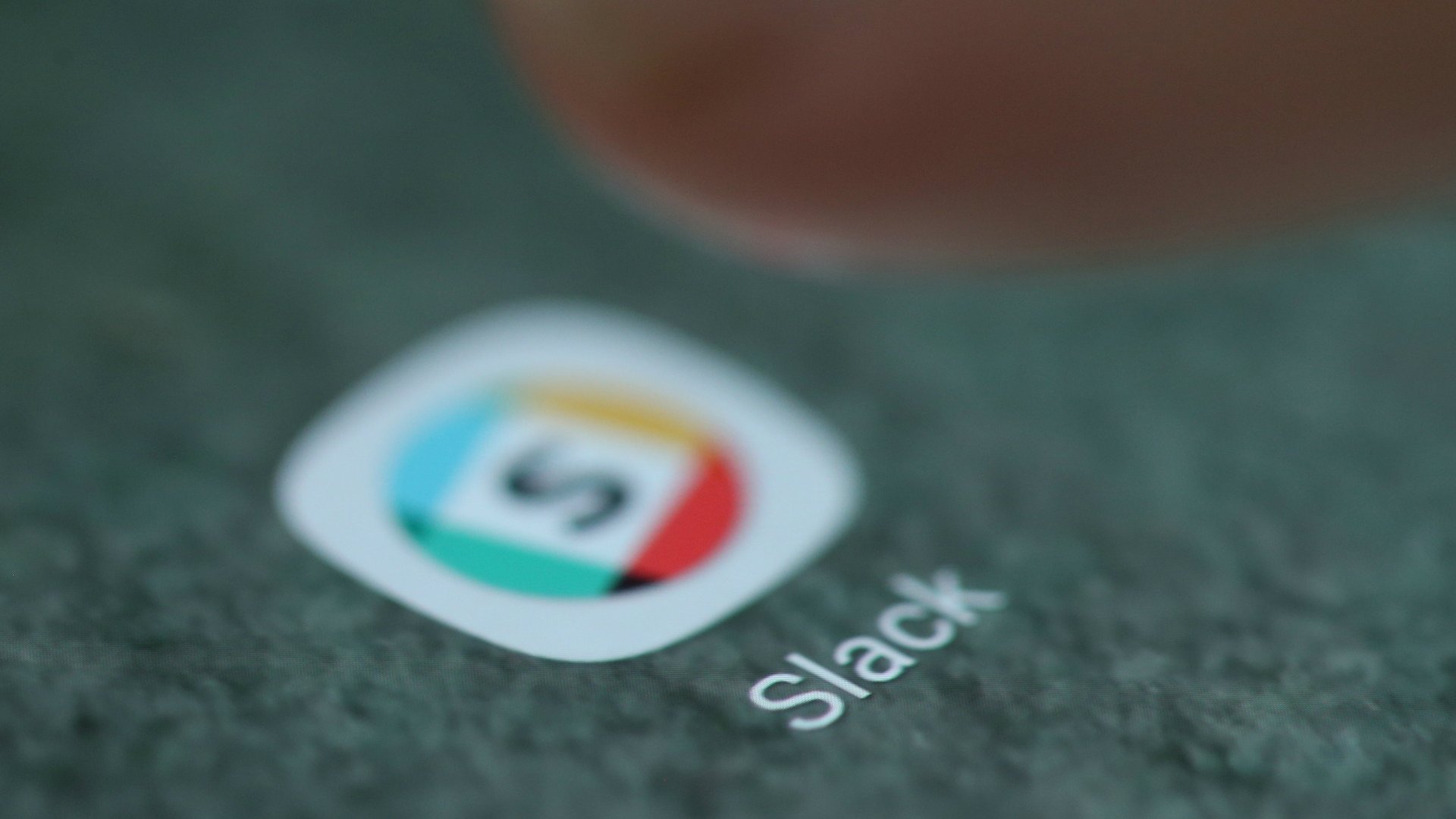Human resources has a new focus: Making millennials feel included and loved
Allie is a Slackbot workers can use to complain to management when they’re interrupted by a colleague. Guys Bot is a GitHub-based chatbot that polices the inclusivity of language, reminding people who use the word “guys” that women also are on staff. Then there’s Disco, a bot that tracks the number of compliments coworkers give each other over Slack and Microsoft Teams. Disco CEO Jeremy Vandehey says the tool “listen[s] to certain praise cues like kudos, cheers, props” then shows who got complimented the most.


Allie is a Slackbot workers can use to complain to management when they’re interrupted by a colleague. Guys Bot is a GitHub-based chatbot that polices the inclusivity of language, reminding people who use the word “guys” that women also are on staff. Then there’s Disco, a bot that tracks the number of compliments coworkers give each other over Slack and Microsoft Teams. Disco CEO Jeremy Vandehey says the tool “listen[s] to certain praise cues like kudos, cheers, props” then shows who got complimented the most.
In startup land, it’s not uncommon to hear developers say “we couldn’t have done this 10 years ago.” Usually they mean a project’s technical capability wasn’t yet there. But for this wave of tech, there’s a different reason: Prior generations didn’t need the tools. If someone interrupted a gen Xer or a baby boomer, they’d simply interrupt back—or brush it off. Speaking as an Xer, my generation hasn’t used a scoreboard to track compliments since elementary school. I and others my age know when we do a good job because of a sense of inner accomplishment.
So, what do these tools say about millennial culture? Are employers actually buying them?
For starters, Allie CEO Emilie Hsieh says the tool doesn’t just provide a way to report interrupters, but also teaches what to do when interrupted: “The functionality…is tied right now to the people facing behavior, like how do you change things in the moment?” Interruptions, Hsieh says, are a form of microaggression, as are asking someone to take notes or to grab you coffee. Hsieh says that although these interactions “seem so small, it’s very much ugh. You know, you think about it, it bugs you later, how should I have handled that?” So Allie provides tips like “finding an ally in the room to echo you if you do get interrupted,” she says.
For those not personally microaggressed, but who do witness it in action, Hsieh says, “We are creating tips kind of more on the content training piece on, hey, what should you do as a bystander, right? What should you do to be a good ally?”
Evidently, there are grown adults who need outside help to say something bothers them. This concept also propels Guys Bot, launched last November by Austin engineer Taylor Barnett. When the word “guys” appears in a Slack conversation, Guys Bot whirs into action, suggesting employees use “team, all, folks, everyone, or y’all” instead. Asked why excluded women simply don’t say something, Barnett says, “[T]here’s a difference when it[‘s] coming from someone other than the woman herself.”
Of course, Barnett also adds she’s not comfortable speaking up personally: “I never want to be ‘that woman’ who brings it up in projects I run. But when a bot brings it up instead, it is a bit different.” To lend Guys Bot authority, she says she considered using “a stock photo of a guy so it is like a guy saying it. Lol. Showing good ally skills.”
Barnett doesn’t know how many users Guys Bot has, nor can Hsieh share usage stats for Allie. But Allie shows early traction: Techstars, a highly-competitive accelerator, chose the startup as one of ten for its 2017 Chicago class, investing $100,000.
Disco has raised $1.7 million and counts Intuit, Casper, and Box among its customers. CEO Jeremy Vandehey says, “Recognition is actually one of the fastest ways to help people feel like their work matters and build better relationships with their coworkers.” In fact, Disco competitor Globoforce contends 78% of employees would work harder if they felt better recognized and appreciated.
Tell Vandehey that prior generations might not understand the need for this tech, and he says he understands: “Even though technically I’m in the millennial bucket, I grew up on a dairy farm so nobody ever told me I was doing a good job all day.” But the reality of being human, he continues, is “that it’s more of a human instinct to crave recognition and praise and ultimately satisfaction in knowing that we’re doing good work. I think that’s kind of what we’re all looking for right? We’re spending so much time at work we want to know that it’s bubbling up to something meaningful.”
To the same question, Hsieh says, “If that’s the case, I don’t think they’re our customer, which is fine.”
What sets Disco apart from Allie and Guys Bot, though, is that ability to resonate cross-generationally. Millennials may instinctively understand the value of these tools, but for other generations making corporate purchasing decisions, Hsieh and Barnett must learn to explain. Else their tech will be dismissed as mere folly.